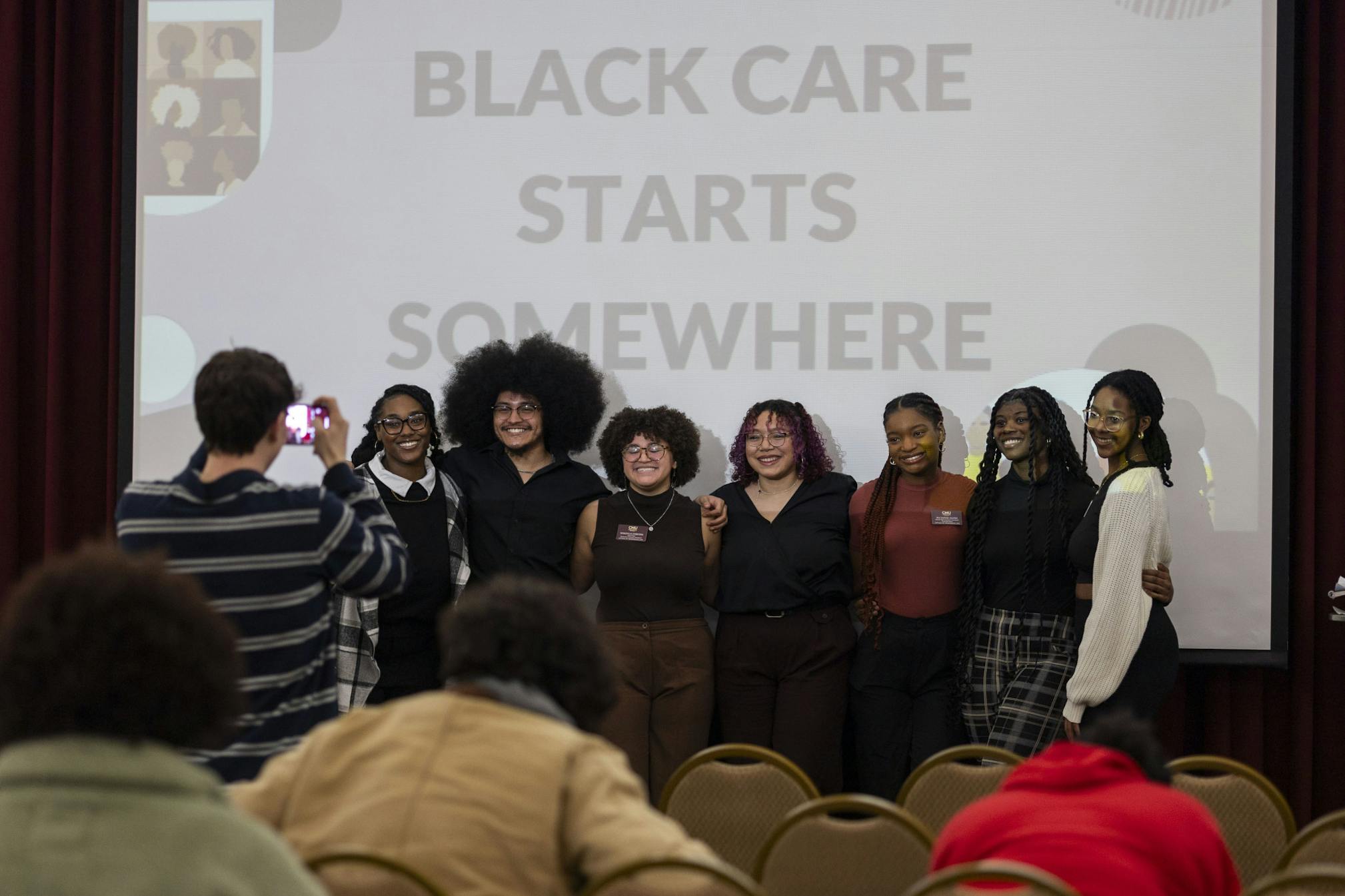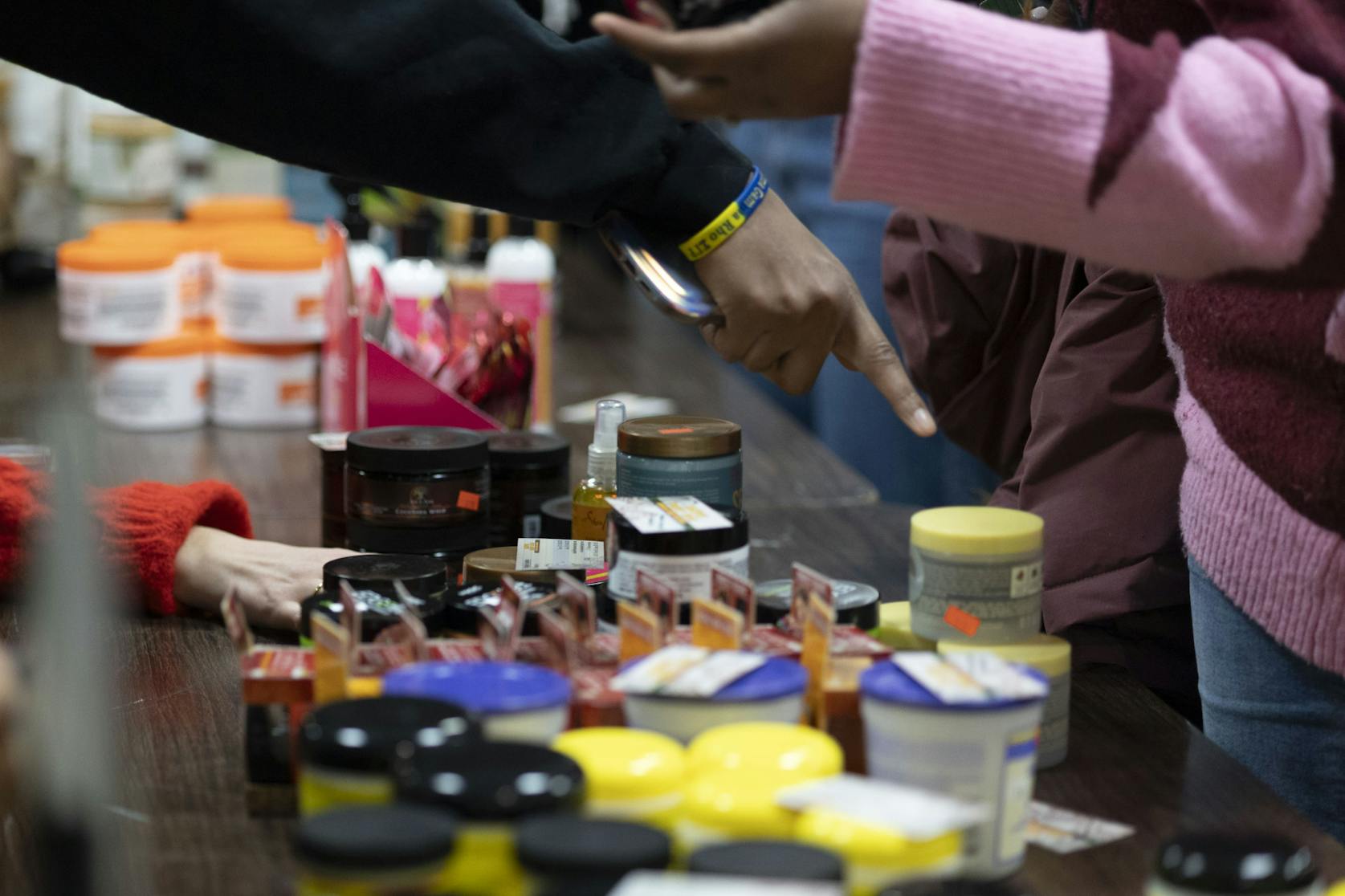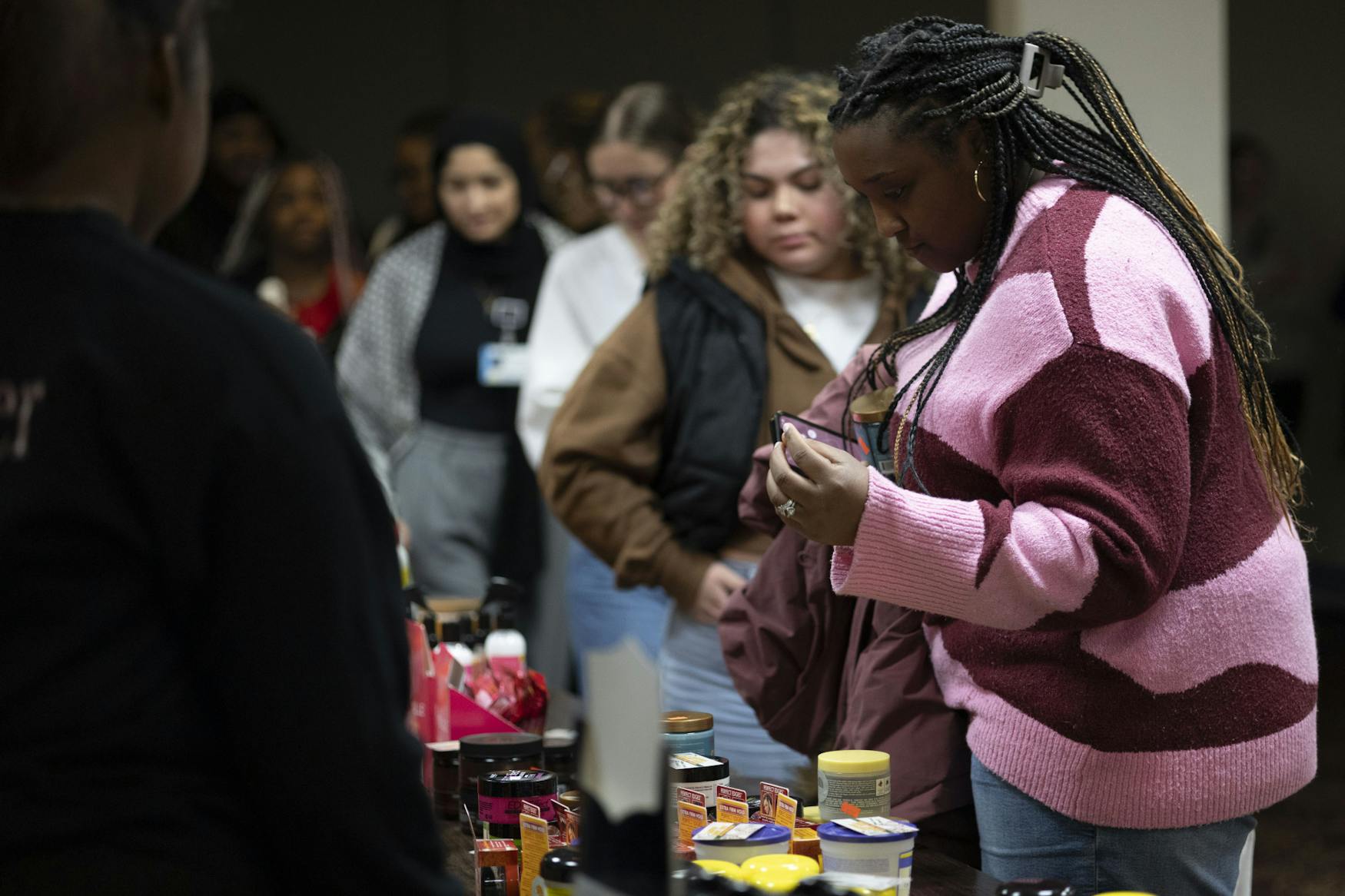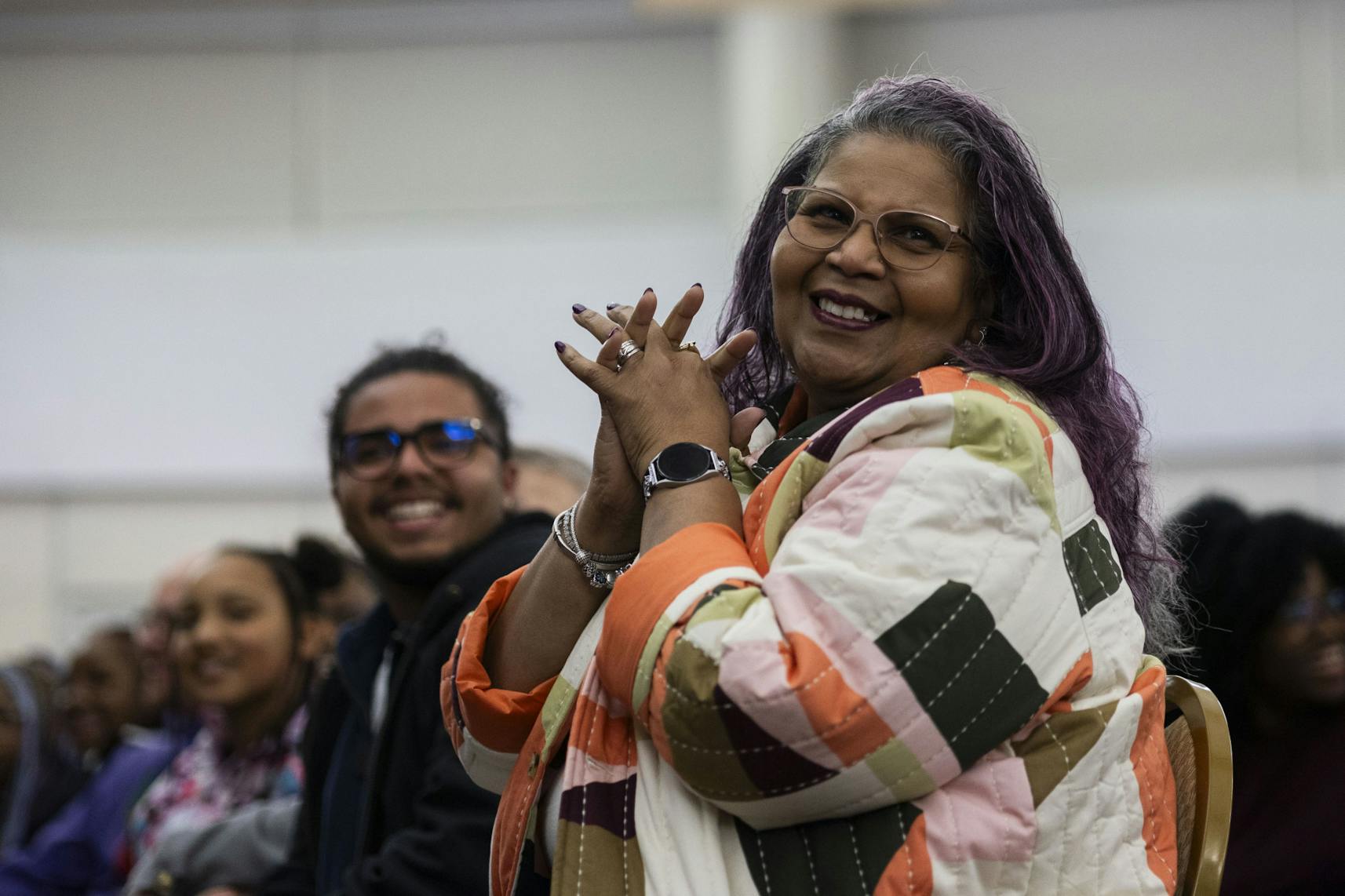Central Michigan Life – Black Care Starts Somewhere: Hair, skin, mental health care for African American students

[ad_1]
Black Care Starts Somewhere event raised conversations about Black people’s hair, skin and mental care, while also informing about microaggressions through complimenting that Black people face.
This event took place Feb. 16 at the Bovee University Center Rotunda. Both students and staff spoke during the event.

Black Hair Care
Christiano Bermúdez and Makayla Osborn, who are both students, spoke on hair care, its history, its caring process and tips .
Black hair, historically, is more than just about hair, they said.
“It has always been a sign of resistance,” Osborn said. “During the slave trade, slaves were forced to shave their heads … it was a way of punishing them and keeping control.”
They said that it also became a way to help slaves escape.
“They would braid the hair in those intricate designs, and it would be able to show different things,” Osborn said.
Title XII, which was a part of the Civil Rights Act, advises employers to avoid using it to be restrictive towards races but allow restrictions on hair.
They said hair care is important for both self and social images.
“We walk into a room and our hair, along with our face, is the first thing people are going to see,” Bermúdez said. “Our hair is our crown, so let’s treat it as so.”
Some tips for hair care they said were:

Haircare products sit on the table for participants to choose from, Friday, February 16, in the UC Rotunda.
Sleep with a bonnet, durag or silk pillowcases
- If the hairstyle is hurting, it may be damaging your hair
- Condition according to your hair’s porosity level, the size of your pores
- Wash your hair with some warm water but finish with cooler water
- Try to wash your hair outside of the shower
- When using a blow dryer, use the cool setting
They also brought up the difference between a microaggression and a compliment.
“The point of what you’re saying about somebody’s hair is to uplift them or compliment them,” Osborn said. “What you think is a compliment might not be a compliment and if you’re questioning it, don’t say it.”
Bermúdez also said how important someone’s hairstyle is.
“I truly strongly believe that through our own hair journeys, we find ourselves,” they said. “We are more able to express them.”
Skin Care
Ku’Juana Quinn and Rachael Veasley discussed the science, history, process and routine for melanated skin care.
Melanin is a culmination of all sorts of personal body traits.
“The definition of melanin is a substance in your body that uses hair, eye and skin pigmentation,” Veasley said. “Melanin is created by cells called melanocytes.”
Quinn said that skin conditions also look different depending on melanin. That can be problematic due to a lack of education on different appearances of those conditions.
“Typically, there is a lot of discrimination within dermatology, as medical professionals do not get trained in the way that different skin conditions will appear on people of color,” she said. “Dermatology is a medical specialty that is focused more on their images.”
They brought up a four step plan for melanated skin care. However, this plan can have more steps added to it as one size does not fit all, Quinn said.
- Wash your face to get rid of dirt and excess oil
- Treatment removes any leftover dirt
- Moisturize to keep the skin hydrated, soft, smooth and less irritated
- Wear sunscreen to decrease dark marks, wrinkles and hyperpigmentation

A CMU student looks at the labels of hair products during the event, Black Care Starts Somewhere, Friday, February 16, in the UC Rotunda.
Some more tips they had were:
- Don’t sleep with makeup on
- Consider double cleansing with an oil cleanser and a holding cleanser
- Do your own research
- Moisturize, even with oily skin
- Have a balanced diet
- Be conscious of what you put on your skin
- Use products specifically for your skin type
Mental Care
Dedicated Counselor for the Center for Student Inclusion and Diversity Husbands talked about mental wellness for all students.
When she came to Central Michigan University, she was a therapist in training. She came from a background where mental health was not prioritized, she said.
“Both of my parents were ministers and so there was a lot of ‘pray about it,’ talking about it to your pastor,” she said. “When I had my first session with a therapist, it was like, ‘Wow,’ there’s somebody out there that really is not trying to push an agenda, but is really clearly to talk with me about things that I need.”
Husbands said that when things get difficult to talk to somebody as, just like our physical bodies, ignoring problems isn’t healthy.

She also thinks that sleep is important to our nurturing.
“Your brains and bodies are still growing and developing,” Husbands said. “You only grow and heal when you sleep.”
With so many people in extracurriculars and other responsibilities, along with school, balance was also something she took time to discuss.
“Sleep, eat, schedule time to play, time with your friends and then making sure that you are honoring (your) whole person and that you’re finding time for mindful moments,” Husbands said.
[ad_2]
Source link
